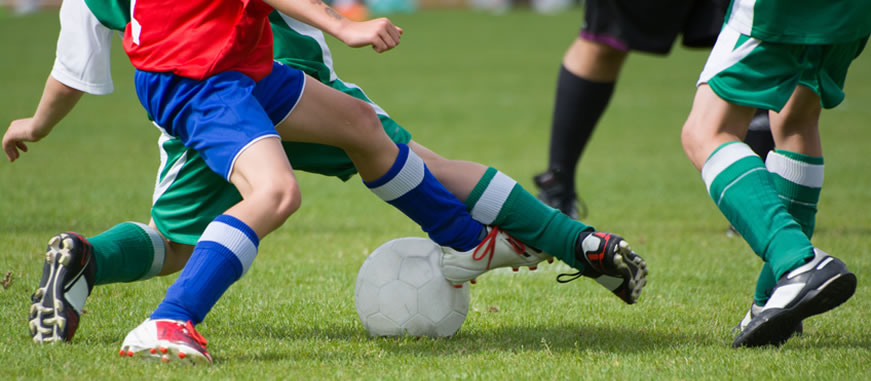
Anterior Knee Pain
Anterior knee pain is an ache behind the kneecap. The pain begins and progresses slowly. It appears in healthy, athletically active young people between 12 and 35 years old, and is twice as common in women as in men. This is the most common knee problem for runners.
You may experience:
- pain around or under the kneecap that worsen after walking or running up ramps or hills, squatting, or jumping up and running;
- a sense of "giving way" at the knee
- "water on the knee"
There are various causes of anterior knee pain, including:
- muscle imbalance at the knee
- a direct blow to the knee
- over-stress of the knee, for example due to long distance running, rugby or football
- an abnormal development in the knee that has been with you since birth, (i.e. "congenital").
Yes. Many instances are avoidable, by:
- strengthening your upper leg and hip muscles
- avoiding activities or bandages that compress the kneecap
- Your doctor will take your "history" or medical background, and willexamine you
- Your doctor may arrange X-rays of your knee
Surgery is sometimes necessary as a last resort. In surgery, cartilage is shaved using an arthroscope. In some instances, open-knee surgery may be necessary to realign the kneecap.
At hospital
- Often nothing more than medication is needed
- Sometimes special shoes are recommended
- Occasionally surgery is necessary as a last resort, to shave the cartilage or realign the knee cap
At home
- Rehabilitation of the quadriceps muscles and hamstrings is sometimes necessary following surgery.
- Rest is essential. Trying to "work through" or "run through" pain worsens the condition.
- Do not kneel or climb stairs unless you must.
- Apply ice bags for ten minutes, three or four times a day, for three to four days.
- After three to four days, apply heat frequently. Use heat lamps, hot soaks, hot showers, heating pads, or heat liniments and ointments.
- Your Consultant may prescribe orthotic shoe devices, knee straps or braces.
Your Consultant may prescribe non-steroidal anti-inflammatory drugs (NSAID's). You may also take paracetamol with these medications. It is advisable to check with your GP that any new medications you are prescribed will not interact with any medications you currently take.
In about 80% of cases, patients are able to return to vigorous physical activity.
In the remaining 20%, the condition will return if vigorous activity is resumed.
- When the pain has subsided, start on quadriceps drills for rehabilitation. Resume athletic training when the injured leg reaches 75 % of the strength of the other leg.
- Eat a well-balanced diet that includes extra protein, fluid and fibre.


